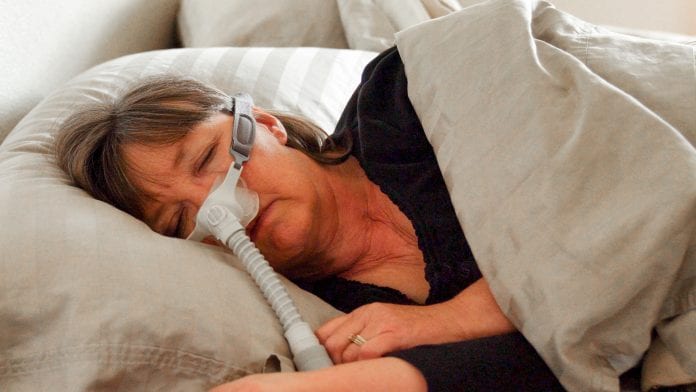
Existing medications could be repurposed to successfully reduce the severity of sleep apnoea by at least 30%, new research has revealed.
Professor Danny Eckert, Principal Research Scientist at NeuRA and Professor and Director of Adelaide Institute for Sleep Health at Flinders University, led the study, which repurposed two existing medications to test their efficacy in people with sleep apnoea. Researchers found that the medications, reboxetine and butylbromide, did successfully lower the severity of participants’ sleep apnoea by up to one third.
The findings have been published in The Journal of Physiology.
Sleep apnoea is a condition which causes the upper airway from the back of the nose to the throat to close repetitively during sleep, restricting oxygen intake and often disrupting an individual’s sleep. As well as symptoms whilst asleep, sufferers may also experience tiredness, a lack of concentration, mood swings, and headaches throughout the day.
Current sleep apnoea therapies
Despite almost 30 years of research, there are currently no approved drug therapies to treat the condition. Until now, the main therapy for sleep apnoea involves wearing a mask to bed, or Continuous Positive Airway Pressure Therapy (CPAP). However, many people find it uncomfortable. In addition, the efficacy of second line therapies, such as mouthguards fitted by dentists, can be unpredictable and expensive.
The new research from Professor Eckert and his team has brought scientists one step closer by determining that reboxetine and butylbromide are effective in reducing the symptoms of sleep apnoea. Previous research has shown that these two classes of medication were able to keep muscles active during sleep in people without sleep apnoea, and assist their ability to breathe.
By repurposing the medications, researchers used a multitude of recording instruments to measure whether reboxetine and butylbromide could successfully target the main causes of sleep apnoea. This included balancing the electrical activity of muscles around the airway, preventing the throat from collapsing while people were sleeping, and improving the regulation of carbon dioxide and breathing during sleep.
Results from the study showed these medications did increase the muscle activity around participants’ airways, with the drugs reducing the severity of participants’ sleep apnoea by up to one third. Almost everyone studied showed some improvement in sleep apnoea. People’s oxygen intake improved, and their number of breathing stoppages reduced by a third or more.
Future research to improve sleep apnoea treatment
These new findings allow researchers to further refine these types of medications so that they have even greater benefit than what has currently been found.
Professor Eckert said: “We were thrilled because the current treatment options for people with sleep apnoea are limited and can be a painful journey for many.
“Next, we will look at the effects of these and similar medications over the longer term. We will assess whether we can harness the benefits of one drug without needing to use them both.
“Equally, we will test whether these treatments can be combined with other existing medications to see if we can improve their efficacy even more.”

























